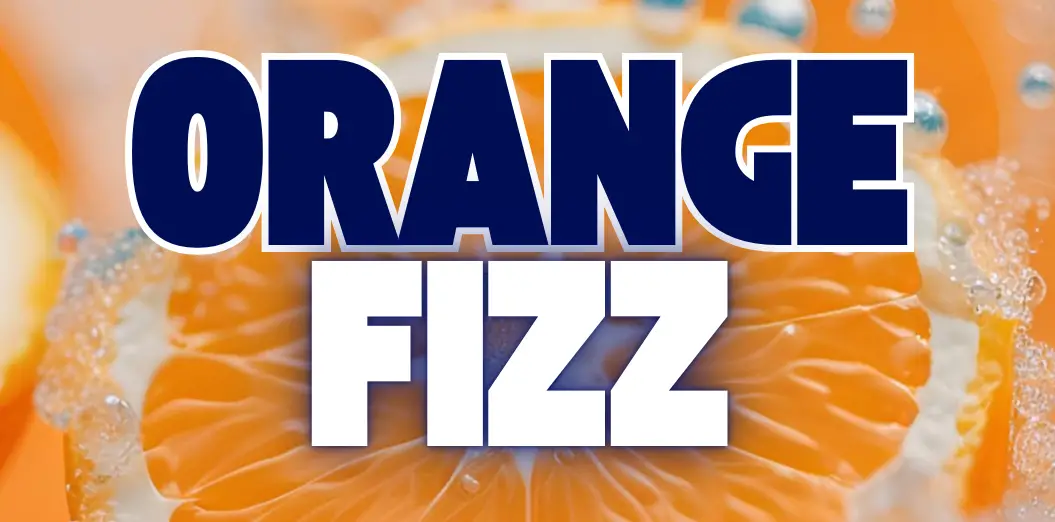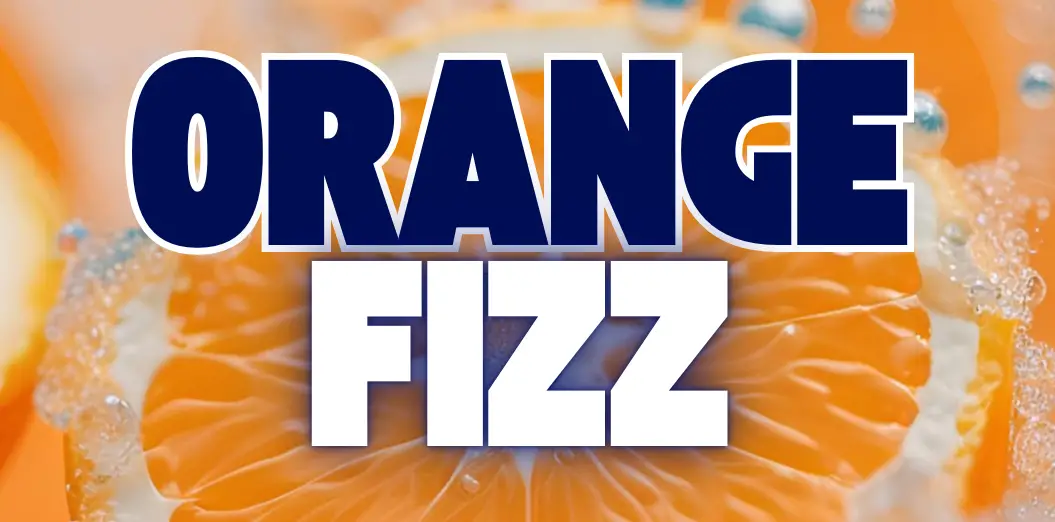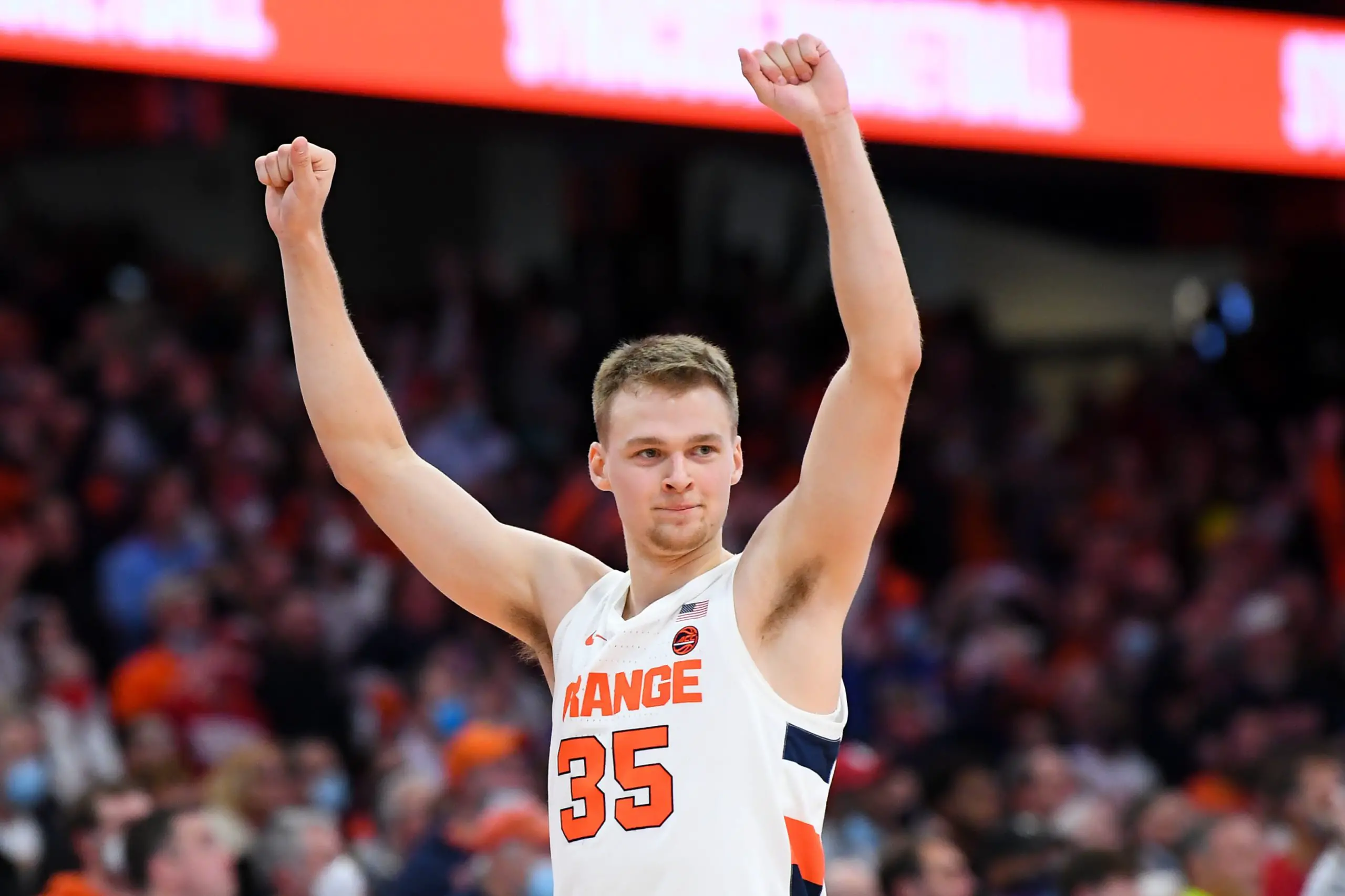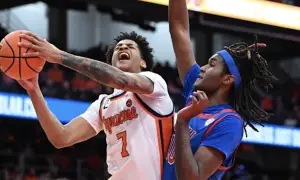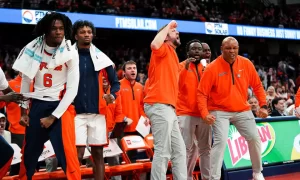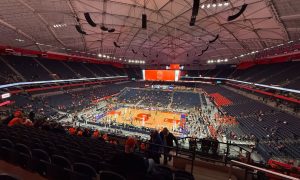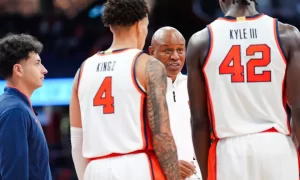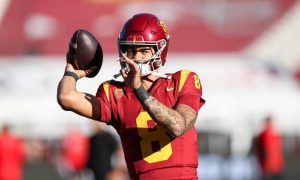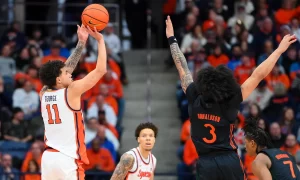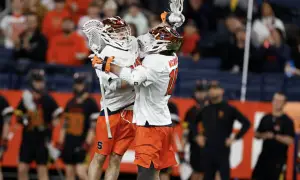Barring an unlikely tournament run or NIT invitation, the end of Buddy Boeheim’s career is coming up on the horizon. His accolades are plenty and the player he’s grown into is exponentially better than what Syracuse fans saw when he first played in Orange.
After taking a backseat in his freshman year to players like Oshae Brissett, Tyus Battle and Frank Howard, Buddy’s production was rather mute, averaging under seven point per game. But since those days, the coach’s son skyrocketed in minutes and points, logging over 35 minutes and 15 points per game in his final three seasons. This matters because this season, despite SU’s struggling record, is the culmination of every expectation that was placed on Boeheim when he chose to stay in Central New York, which he has most certainly matched and overachieved with a first team all-ACC nod just a couple days ago.
But instead of lauding his magnificent scoring year, leading the ACC with 19.3 points per game and a total of 599 points (one more than Wake Forest’s Alondes Williams), the notion is still doubt. The same narrative that he has drawn over the years for subpar play, but consistent minutes due to being Jim Boeheim’s son.
So, let’s explore whether Buddy is deserving of a spot on the all-ACC first team.
First it’s worth mentioning that out of the five that garnered first-team honors in the conference, Buddy received 241 votes, which was the least by a landslide compared to the other first teamers. Boeheim is on that prestigious list with:
Armado Bacot, C, North Carolina
The junior picked up the pieces on what was considered an underperforming pair of seasons in Chapel Hill by averaging a double-double with 16 points and 12 boards. That was anchored by ten or more points and rebounds in 23 of UNC’s 31 games. Bacot also found himself among the top of most statistical categories in the conference, which is uber important to take into account when picking out all-conference talent and designating them to certain accolade-driven teams. The North Carolina center ranked 7th in scoring, 1st in rebounds, 5th in blocks and 1st in field goal percentage among the rest of his ACC cohorts. Stats like those made it easy for Bacot to land on the first team, and a big reason why he was just 11 votes away from winning conference player of the year
Alondes Williams, G, Wake Forest
This senior won conference player of the year for a reason. If it wasn’t for Buddy scoring 30 points in the season finals, Williams would’ve finished as the ACC scoring champ, but instead he had to settle for the second spot. But that doesn’t overshadow the rest of his game. The Wisconsin native carried a Wake team that was predicted to finish in the bottom fourth of the conference into a five seed in the ACC tourney and a 23-win regular season squad. This has solidified a spot for the Deacs in the tournament and it’s both because Williams scored 19.3 points per game, and added top 15 in rebounding, 1st in assists, top five in field goal percentage (52%), and even ranked in the top 25 in steals per game.
Paolo Banchero, F, Duke
I’ll keep this one short and sweet: Banchero is a bonified #1 NBA draft pick and he was locked into this spot ever since the first month of the season passed. The freshman spearheaded a first place Duke team that lost just five regular season games, and he was the instigator. Standing at 6’10, with the ability to shoot, dribble and create, Banchero notched 17 points and eight rebounds a game, good for 6th and 5th in the conference respectively. That, coupled with a top 20 showing in field goal percentage, assists and blocks makes it fairly cookie cutter that the stellar Duke first-year landed on this list.
Kameron McGusty, G, Miami
Similar to how Alondes Williams dug Wake Forest out of the depths of the ACC preseason polls, McGusty and did the exact same for Miami. After leaving Oklahoma in 2018 to bask in the South Beach weather, the senior’s scoring numbers have been phenomenal, but none more than this season. McGusty averaged close to 18 points per contest (which ranks 4th in the conference), and did so with scoring in double figures in 29 of the Canes’ 31 games. He did it at an efficient rate as well, shooting 47% from field (good for 12th in the ACC). The kicker is McGusty’s near two block a game though, slotting him at third in the conference in takeaways. So on both ends of the floor, the senior made his presence felt.
Then there’s Buddy Boeheim, who topped the ACC in scoring (joining Elijah Hughes, who did so back in 2019-2020), but did so at a 41% clip (18th in the conference) and 34% from distance (4th in the conference). The SU senior dropped in the second most threes per game among the ACC’s best with close to three a contest, which sets him apart from the other all-ACC first team selections. Buddy as led the conference in free throw percentage, shooting 89% from the stripe. That’s not to mention the Syracuse’s native top 20 spots in assists and steals per game.
So do all these statistics constitute a first-team nod? The main gripe for the masses has to be how poorly Syracuse played as a whole. In terms of performance, the Orange wildly underachieved expectations, so the question lies upon how much precedent team record has on an individualistic standpoint. The way to debunk that previous argument is by presenting out Boeheim’s teammate, Elijah Hughes, who led the ACC in scoring on a rather subpar 18-14 Syracuse team that was destined for the tournament.
To veer away from the Salt City, Pitt’s Justin Champagnie ranked 2nd in scoring and 1st in rebounding in the conference last year on a 10-12 Panthers squad that missed March Madness.
Those two cases should be enough to support Buddy as a fringe first team all-ACCer at the very least, and the senior divvied out this production while playing the most minutes in the conference. Not to mention, the next closest name to land on the first team over Boeheim is Virginia Tech’s Keve Aluma, who isn’t top 10 in points, rebounds or blocks in the ACC.
So when taking into account every piece of the puzzle that landed SU’s star on the all-ACC first team, the variables will still float in the shadows and support both sides of the spectrum, but either way the facts are the facts and Buddy’s best season in Orange was followed by the biggest conference honor he could hope for.
